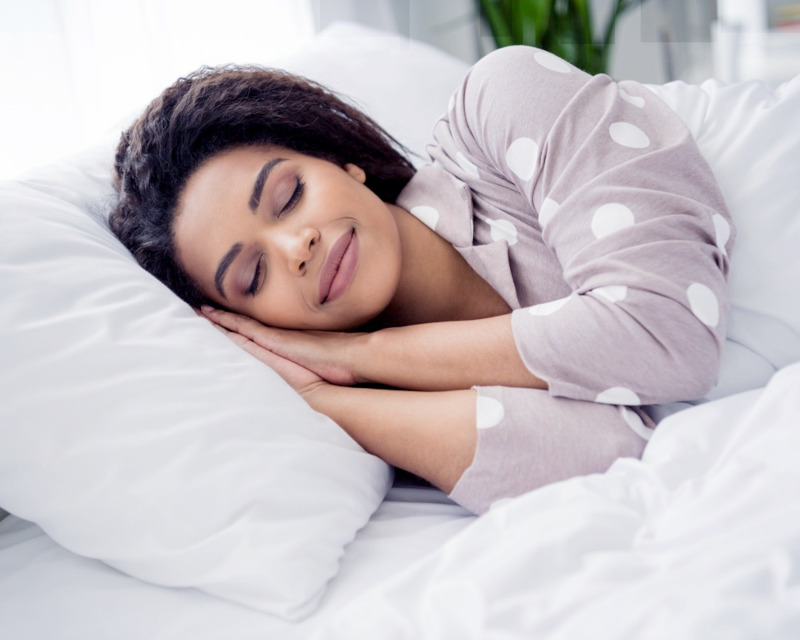7 Ways to Improve Your Sleep
Sleep shortage can have an impact on your health and weight-loss efforts. Read on to find out how to sleep more soundly.
1. Eat Balanced Meals. “Enjoying a healthy, balanced diet promotes a sense of wellbeing and may also help to encourage a good night’s sleep,” says Golley. “Ensure you're eating plenty of wholegrains, fresh fruit, vegetables, lean meat, legumes and low-fat dairy foods.” Bananas are a good source of muscle-relaxing magnesium.
2. Schedule Exercise Time. Workouts reduce stress and promote sleep, but they need to be timed right. Exercising earlier in the day is best if possible. Dr John Swieca, medical director of the Melbourne Sleep Disorders Centre states, “Doing vigorous exercise in the evening increases your adrenaline levels, making it harder for you to get to sleep.
3. Stick to a Routine. Sleeping late on off days can encourage your body clock to drift forward which may make it more difficult to fall asleep earlier in the evenings. “Keep your wake-up times consistent and do not sleep in too late on the weekends,” says insomnia researcher Professor Leon Lack from the School of Psychology at Flinders University.
4. Soak up the Sunshine. Before you start your day, try to get out for an early morning walk or jog. “Exposure to morning sunlight is crucial for setting your body clock,” explains Professor Lack. “Indoor light isn’t usually strong enough, so you need to get outdoors into the sunlight.”
5. Take a Siesta. Feeling exhausted after a restless night? Take a short nap to reset. “A midday nap is probably the best way to make up for it and get in some extra sleep,” says Professor Lack. “A brief 10-minute nap can alleviate drowsiness for a few hours and help you get through the day.”
6. Curb Your Caffeine. Using caffeine to combat the slump may be harming your sleep. “Tolerance for caffeine varies among individuals, but if you find falling asleep difficult, avoid caffeinated drinks a good four to eight hours before bedtime,” recommends accredited practicing dietitian Pip Golley.
7. Turn off your computer. Avoid checking emails an hour before bedtime. “Our body clock needs dim light in the evening to let it know it’s time to rest,” says Dr Swieca. As bedtime approaches, avoid bright lights, such as the blue light emitted from TVs, computers, tablets and smartphones. “It’s important to create a separation between the busyness of the day and the time you’re meant to rest and sleep,” he adds.
Get more activities

